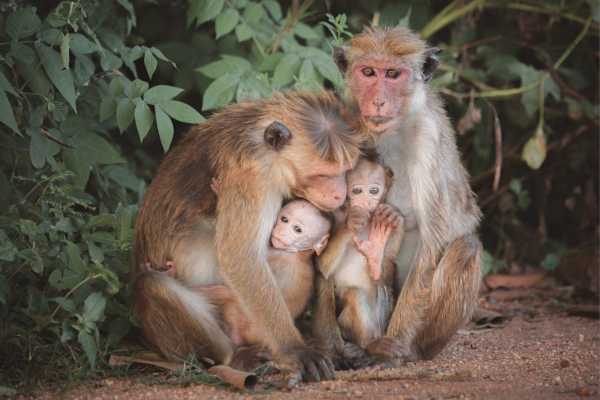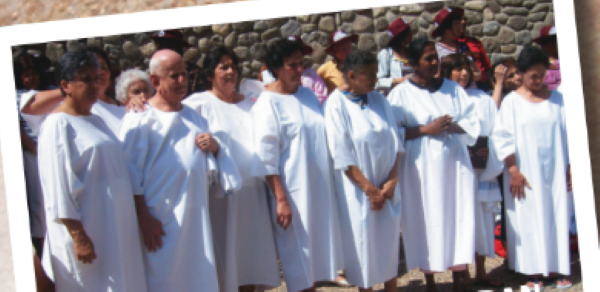The Toque Macaque: Sri Lanka’s Endangered Primate – By Bhanuka – eLanka

The Toque Macaque (Macaca sinica) is a unique and highly social primate species endemic to Sri Lanka. Known for its distinctive toque-like hair pattern, this monkey plays an important ecological role in Sri Lanka’s forests and has significant cultural importance. However, due to habitat destruction and other human-induced factors, the Toque Macaque is currently listed as endangered in the Red Data Book of Sri Lanka. This article explores the key characteristics, behavior, habitat, and threats faced by this fascinating species.
Key Characteristics of the Toque Macaque
The Toque Macaque is a medium-sized primate, typically weighing between 4 to 8 kilograms. Its most striking feature is the crown of hair on its head, which resembles a cap or “toque,” giving the species its name. The Toque Macaque comes in three subspecies, each with slightly varying physical characteristics and regional distributions:
- Macaca sinica sinica – Found in the dry zone.
- Macaca sinica aurifrons – Inhabits the wet zone.
- Macaca sinica opisthomelas – Limited to the montane zone in the central highlands.
These primates are typically brown or reddish-brown, with lighter-colored underbellies. They have a long tail, and their facial features include prominent, expressive eyes that make them highly charismatic animals.
Social Behavior and Ecology
Toque Macaques are incredibly social animals, living in large troops that can range from a few individuals to over 50. Their social hierarchy is complex, with dominant males leading the group. Females generally remain in the same group throughout their lives, while males may leave their birth group upon reaching maturity.
The species is highly adaptive and omnivorous, meaning they eat a variety of foods, including fruits, leaves, seeds, insects, and small vertebrates. Their diet largely depends on what is available in their environment. Toque Macaques are also known for their playful behavior and intelligence. They have been observed using tools, engaging in social grooming, and even raiding crops or garbage in urban areas, leading to occasional conflicts with humans.
Habitat
Toque Macaques inhabit a range of environments across Sri Lanka, from the dry lowlands to the wet forests and the central highlands. They are most commonly found in the dry zone, where they occupy forests, scrublands, and even areas close to human settlements. The adaptability of these primates has allowed them to survive in various ecosystems, including protected wildlife sanctuaries and national parks, such as Yala and Wilpattu.
However, rapid urbanization, deforestation, and agricultural expansion have significantly reduced the natural habitat of the Toque Macaque. This reduction in available habitat is one of the primary threats facing the species today.
Conservation Status and Threats
The Toque Macaque is currently classified as Endangered by the International Union for Conservation of Nature (IUCN). This designation is primarily due to habitat loss, hunting, and human-wildlife conflict. As forests are cleared for agriculture, human settlements, and infrastructure development, the macaques are forced into smaller, fragmented patches of forest, increasing competition for resources and leading to isolation of populations.
In some areas, Toque Macaques are considered agricultural pests, as they often raid crops such as fruits and vegetables. This behavior has led to negative interactions with farmers, who sometimes view them as nuisances and may retaliate by hunting or trapping them.
Another major threat comes from urbanization. As more macaques come into contact with humans in cities and towns, they are at greater risk of being hit by vehicles, electrocuted by power lines, or captured for the illegal pet trade.
Conservation Efforts
Efforts to protect the Toque Macaque are underway, but more work is needed to ensure their long-term survival. Conservation measures include:
- Protected Areas: National parks and wildlife sanctuaries, such as Yala, Wilpattu, and Udawalawe, offer refuge for Toque Macaques. Expanding these protected areas and ensuring they are well-managed is critical to safeguarding macaque populations.
- Reforestation: Restoring degraded forests and establishing wildlife corridors to connect fragmented habitats are essential steps to provide the macaques with more continuous and sustainable environments.
- Human-Wildlife Conflict Mitigation: Reducing conflicts between humans and macaques by promoting sustainable agricultural practices, using non-lethal deterrents, and educating local communities about the importance of wildlife conservation can help prevent retaliatory killings.
- Public Awareness and Education: Raising awareness about the ecological importance of the Toque Macaque and its role in Sri Lanka’s biodiversity can foster a greater appreciation for the species and encourage conservation efforts.
- Research: Continuous research on the behavior, ecology, and population dynamics of the Toque Macaque is essential to developing effective conservation strategies.
Cultural Importance
In Sri Lankan culture, the Toque Macaque has long been a symbol of energy, playfulness, and intelligence. In some regions, the monkey is even associated with certain religious beliefs and practices. For instance, in the ancient city of Polonnaruwa, the Toque Macaque is revered and protected within temple grounds, where they live harmoniously alongside human pilgrims.
Conclusion
The Toque Macaque is a key part of Sri Lanka’s natural heritage, playing an important role in its ecosystems and holding cultural significance for the people. However, the species faces significant threats, and urgent action is required to protect its populations. By expanding protected areas, mitigating human-wildlife conflicts, and raising public awareness, Sri Lanka can ensure the survival of this charismatic primate for generations to come.
Protecting the Toque Macaque is not only crucial for maintaining biodiversity but also for preserving the ecological balance in Sri Lanka’s forests. Conservation efforts for these animals will contribute to the overall health of the island’s wildlife and natural ecosystems.




















